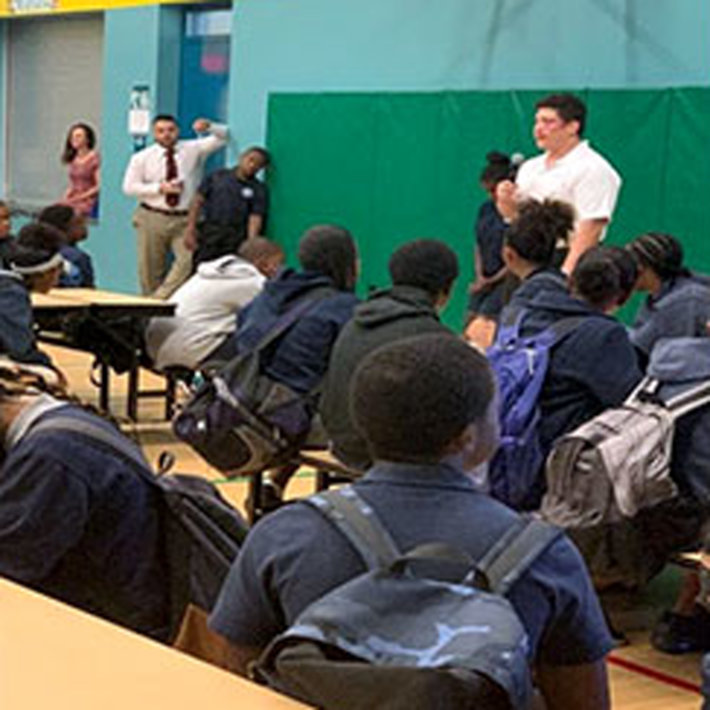Debunking Stimulant Abuse for “Improved College Performance”

Though common sense indicates that college students should not experiment with drugs and alcohol, there has been a longstanding belief that using prescription simulates can help boost scores when taking a test, or help with information retention when studying for a test.
While it has long been suspected that this concept is nothing more than a myth, now the data shows that not only is it truly a myth, but college students who are convinced to take stimulants as a “study aid” end up being more likely to start consuming alcohol and cannabis, leading them down a dark path of drug experimentation and harm.
The route to a successful and rewarding college experience lies in hard work, studying, effective time management, and perhaps most of all, choosing subjects of interest to the student, not attempting to use mind-altering substances to improve test scores.
Experimenting with Prescription Drugs is Now Associated with Other Drug Use
A body of research published by authors Warnock, Lauckner, and Ingram recently garnered national headlines thanks to a feature in U.S. News. The thesis of the research was simple enough. Students no longer restrict their use of prescription stimulants to study and test prep. Now, college students also take prescription stimulants as a “pick-me-up” after time spent using other substances.
“The fact is that these drugs don’t help you academically. It’s a subjective effect. You feel lifted. You feel up, and so, you feel like you might be more focused, but the research doesn’t show that. The research shows that people that do stimulants like this likely do worse.”
Ash Warnock, a doctoral student at the University of Georgia College of Public Health and one of the study authors, provided some crucial insight into the study’s findings. “Stimulant use may be a kind of catch-up behavior. Some studies have shown that students who party with drugs and alcohol on the weekends use stimulants like an academic catch up because they’re behind on their studies.” Warnock went on to say that, “The fact is that these drugs don’t help you academically. It’s a subjective effect. You feel lifted. You feel up, and so, you feel like you might be more focused, but the research doesn’t show that. The research shows that people that do stimulants like this likely do worse.”

The research indicates that prescription stimulants do not assist students in any way. The data also shows that students who misuse prescription drugs are likely to do worse on tests, and they’re likely to experiment with other substances too.
The researchers also found that, of the students they surveyed, about 20% of them had used a prescription stimulant at least once before. About 9% admitted to using such drugs recently, suggesting that almost one out of ten college students experiment with prescription stimulants. Furthermore, the survey data indicated that students who use prescription stimulants were three times more likely to experiment with alcohol and marijuana.
What are Prescription Stimulants?
The belief that prescription stimulants improve test-taking had to come from somewhere. To understand why college students initially believed that such drugs could make them better students, it’s important to learn what prescription stimulants are, to understand the effects of taking such drugs.
The National Institute on Drug Abuse defines prescriptions stimulants as such: “Prescription stimulants are medicines generally used to treat attention-deficit hyperactivity disorder (ADHD) and narcolepsy—uncontrollable episodes of deep sleep. They increase alertness, attention, and energy.”
The NIDA information on prescription stimulants lays out the very specific nature of these drugs, the intended purpose of the drugs to treat narcolepsy and ADHD, and the fact that using such drugs to improve grades in school is not effective.
In fact, not only are prescription stimulants ineffective in boosting test scores, but researchers also found that prescription stimulants have a wide range of harmful effects when used for such purposes. One fact sheet compiled for teens and college students explained that prescription stimulants could have immense harm on the heart, nervous system, and stomach, possibly leading to heart attack, stroke, and seizures. Stimulants can also adversely affect blood pressure, heart rate, blood sugar, and breathing. Such drugs can cause hallucinations, paranoia, anger, and other unwanted emotional and behavioral effects.
It’s also worth mentioning that prescription stimulants can be addictive. That risk for addiction is always there, even for people who use these drugs for medical reasons. Approximately 1 million Americans misuse prescription stimulants for the first time each year, and approximately 561,000 Americans are now addicted to such drugs.

Finally, prescription stimulants can cause overdoses. When someone takes more prescription stimulants than they are prescribed or when someone takes these drugs without a prescription, they may experience overdose symptoms like:
- Restlessness
- Tremors
- Overactive reflexes
- Rapid breathing
- Confusion
- Aggression
- Hallucinations
- Panic
- Abnormally increased fever (emergency condition)
- Muscle aches, pains, and weakness
Signs of a life-threatening overdose include:
- Heart problems
- Heart attack
- Nerve problems
- Seizure
- High or low blood pressure
- Circulation failure
- Stomach issues
- Nausea
- Vomiting
- Diarrhea
- Abdominal cramps
- Convulsions
- Coma
- Fatal poisoning
Prescription stimulants may have their value in a solely medical setting. But when taken not as directed, these drugs are dangerous.
Research Shows Non-Medical Stimulant Use Just as Prevalent as Medical Use
Another body of research, this one published in 2013 by authors McCabe and West, showed that 9.5% of students who use prescription stimulants do so ethically and on a prescription, but that another approximately 9% of students experiment with such drugs recreationally. Furthermore, of those prescribed the drug for legitimate medical reasons, about 23% end up misusing the drug.
Given that about one in six students will use prescription stimulants for either medical or non-medical reasons and given that a significant percentage of medical users will transition to recreational use at some point, health professionals, college administrators, and families should seriously consider discouraging prescription drug use and educating students about the potential harms of such use.
The Need for Treatment; What to Do When a College Student Misuses Drugs

While the main point of this article has been to bust the myth that prescription stimulants lead to improved college performance, college students need to understand that no form of drug experimentation is safe, including with such drugs as club drugs, prescription drugs, or synthetic substances. College students should also stay away from alcohol, even if they are of legal drinking age.
And perhaps most importantly, the use of any mind-altering substance can lead to addiction. What might start as a student being peer pressured into taking prescription stimulants “to improve test scores” may escalate into compulsive, unrelenting experimentation with drugs and alcohol.
If you have a family member or loved one who began experimenting with prescription stimulants or other mind-altering drugs and who now cannot stop using these substances, please get in touch with a drug and alcohol rehab center today. Addiction treatment centers possess the tools, environment, staff, resources, and time-tested programs necessary to help recovering addicts address the behavioral, emotional, physical, and psychological aspects behind drug abuse. Make sure your loved one gets help so they can have a successful and rewarding college experience.
Sources:
- https://doi.org/10.1080/07448481.2021.1923506
- https://www.usnews.com/news/health-news/articles/2021-10-08/stimulants-like-ritalin-may-be-gateway-drugs-for-college-students
- https://www.drugabuse.gov/publications/drugfacts/prescription-stimulants
- https://store.samhsa.gov/sites/default/files/SAMHSA_Digital_Download/TipsforTeens_PrescriptionStimulants_508.pdf
- https://www.ncbi.nlm.nih.gov/pmc/articles/PMC3930155/

